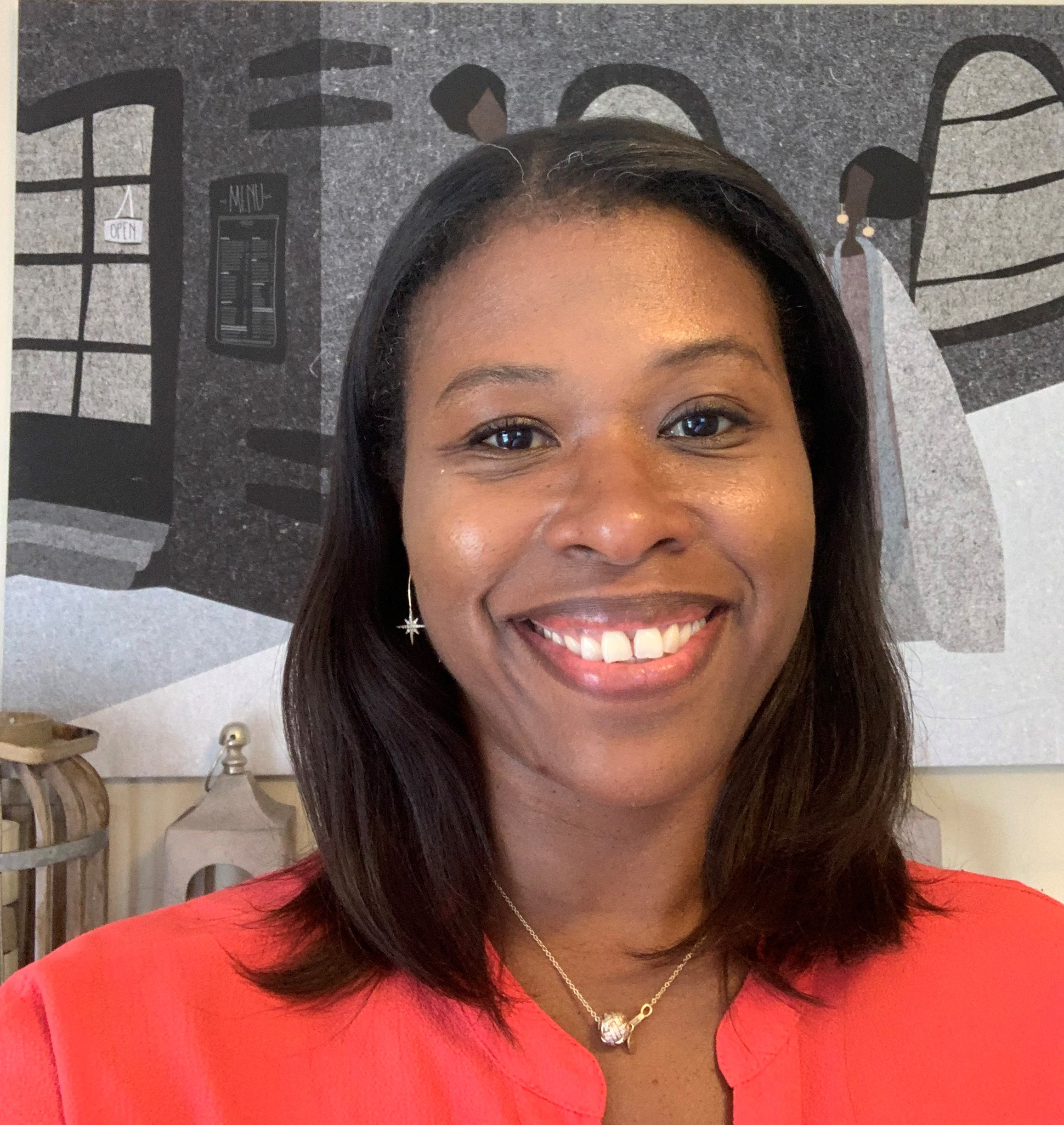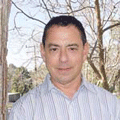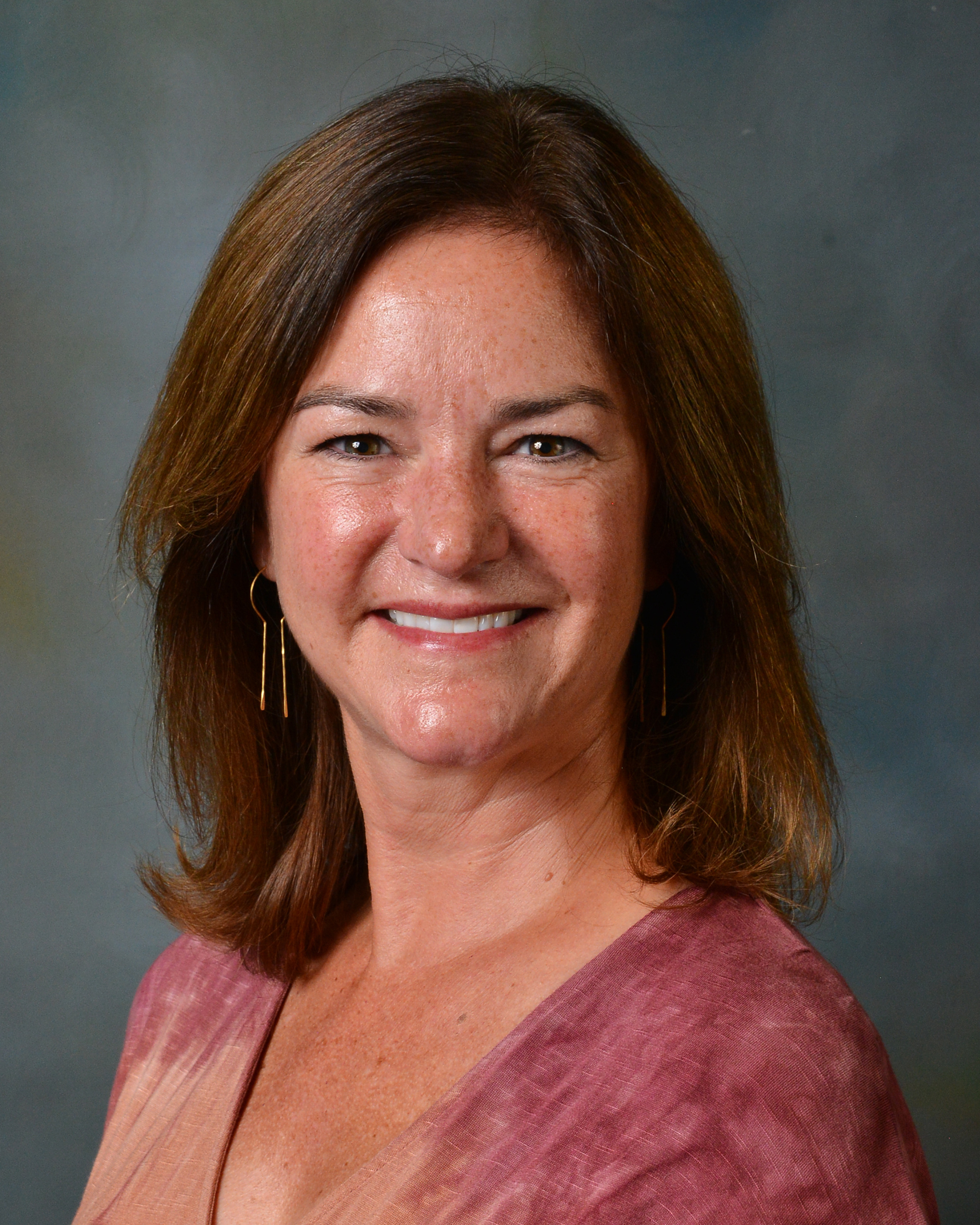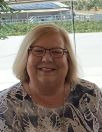You are here
Publish with Corwin
Already a Corwin Author?
Please prepare your manuscript according to the Corwin Author's Guide.
Information for Prospective Authors
For a downloadable PDF version of our author proposal guidelines, please click here.
Proposal Guidelines
Corwin’s Publishing and Professional Learning Group is committed to working hand-in-hand with both new and seasoned authors and consultants to design, develop, and deliver effective professional learning solutions that empower educators and the students they teach. We firmly believe that compelling content—that which is both research-based and extremely practical—lies at the very heart of these solutions. This content has the potential to take shape in a range of modalities and to ultimately take on a life of its own, effecting real change in schools and in the communities in which they are situated.
Content Considerations
What is ideal Corwin content?
- It is rooted in evidence-based practice
- It offers practical, hands-on advice to educators
- It includes tools and templates for educators to put to immediate use in their settings
- It draws on real world examples to illustrate points
- It has depth and substance while also being user-friendly and accessible
What formats does Corwin content take?
Corwin publishes content in many different formats depending on the nature of the specific project and the target audience. Below are some examples of our publishing formats.
Print
Books
Facilitator's Guides
Participant Manuals
Digital
eBooks
Companion websites
Online courses/Simulations
Software/Apps
Video
How is Corwin content delivered?
Depending on the type of project and the publishing strategy, Corwin content may be delivered in a number of different combinations of the above formats. For example, one project may be a straightforward book project, while another may call for a facilitator’s guide to be used in a Corwin-delivered workshop, and another may be a hybrid print/digital project including a book and accompanying online video.
How to Propose Your Project
The following guidelines provide directions for writing and submitting your content proposal. The ideal proposal presents a convincing rationale for your project. It clearly delineates your objectives and, even more importantly, explains the benefits that this content will provide to the educators you are aiming to reach.
A well-developed prospectus should be brief (approximately 8-10 pages) and cover the points listed below, preferably in the order in which they are presented. Because your prospectus is the first effort on your part to convince the publisher and potential peer reviewers of your potential as an author, carefully check the spelling, grammar, and punctuation in all items you submit. If the prospectus contains typographical or grammatical errors, reviewers’ attention will be diverted from the more important consideration of content.
Please use the following three-part guidelines in preparing your prospectus and keep these areas separate, as it will make it easier for us to understand your intentions for the project. Feel free to add any additional items or categories you think are necessary.
The Prospectus
Part I: About the Project: Brief Overview and Rationale
What is the working title? Provide this along with 1-2 introductory paragraphs describing the proposed project, what it covers, its approach, and your purpose and goals in creating such content. Why are you creating this content? What will it accomplish? Explain the relevance of the content and how it will help meet the specific needs of educators. Why is it needed at this time?
Part II: The Market
- Audience. In this section, please identify and describe the audience(s) for your project in as realistic and specific a way as possible. What types of professionals would be interested in the content? Please also describe any secondary audiences who might be interested in the content and explain what you anticipate the nature and level of their interest would be.
- Uses. What are the intended outcomes of your project, e.g., what would the content help the audiences do, understand, improve, carry out, etc.? How would readers/users assess their growth and progress relative to these outcomes? Distinguish between the uses for individual readers and for professional development delivery or whatever other distinction is most meaningful.
- Funding. How is the proposed book a match for district, state, or federal funding initiatives or grant opportunities for P-12 schools? Please list appropriate funding initiatives or other funding sources.
- Associations. What associations or specific divisions of professional organizations or journals would be interested in your content? With which professional associations have you worked?
- Translations. Have any of your books been translated previously? If so, who published the translations? In what countries do you have or have had speaking engagements? In your experience, which countries have the highest potential for translation opportunities of your work?
- Potential Course Adoptions. In addition to being sold to individual practitioners, Corwin content is also often used in college and university courses. If your content has the potential for such use, please provide as much specific information as possible. If you are proposing a book, please include the names of any frequently taught courses for which your book might be an appropriate text, along with the approximate enrollments.
Part III: The Content
- Format and length. What form and format do you envision the content taking and what is the approximate length of the material? Explain how the content you are creating lends itself to this format and/or how the content may work in multiple different formats. Also please describe how this format will work with the use models described in the previous section.
- Approach/Style of Presentation. Does your content have a classroom-level, building-level, or system-level focus? How will the content be applicable to practice?
- Research Base. What is the research or experience upon which this content is built? Briefly describe any special studies or previous work you have done that is relevant to the content. Also, if relevant, please identify any research or evidence used in your work that is based on the work of other Corwin authors.
- Features and Benefits. How does the proposed content address major teaching, learning, and/or leadership challenges facing educators and students today? Are there any special features of the content, such as vignettes, case studies, sample classroom materials, checklists, templates, or other illustrative materials or tools that you plan to incorporate?
- Artwork/Design. Please explain any planned use of figures, tables, photographs, etc. If you are planning to include artwork, please specify the estimated number of graphics you plan to include. Also include any thoughts you have about the overall visual look and feel of the product.
- Ancillaries (include only if applicable). Ancillary content is supplemental print or online material designed to enhance the core product. Are you planning to create additional ancillary material in addition to the key content you have described? For instance, if you are proposing to write a book, do you envision an accompanying website with additional supplemental content? If so, please describe the nature of this content and explain why it would be important for the specified market.
Part IV: The Competition
- Competing or Related Works. Pick three (3) of the top competitors for your proposed content. Be frank, as this information will be given to reviewers to provide them with a comparative framework for your work. Please list the author, title, and publisher of the main competing or related products, and tell us how your product would differ, add to the conversation in your discipline, or be superior. More specifically, focus on comparing topical coverage, organization, level, writing style, pedagogy, and any other relevant similarities and differences between your project and the competitors. If there is no existing content out there that you consider to be in direct competition with your proposed work, please list examples of published content of a similar nature and note how your book would fit within the spectrum of complementary content currently on the market.
DEI Guidelines for Corwin Authors: Considerations for Promoting Social Justice
List of Content Components
Outline of Contents and Component Descriptions
Please provide an outline of the content with all part and section titles indicated. If possible, also include a few sentences about the purpose and nature of each part and section and/or a list of the specific details and examples that will fall under these parts and sections.
Sample Content (if available)
Sample Material
Do not wait until your content is completed to submit the prospectus. Instead, send in your prospectus with one or two sample excerpts. If you are proposing a book project, note that we typically ask for two sample chapters to evaluate for content, style, level, etc. When we acquire projects in early stages of development, we are more able to provide editorial guidance and feedback. Of course, if the content is already complete, or nearly so, then send copies of all that is available.
Biographical & Other Information
Alternative Title Possibilities
Along with your current working title, please suggest several alternative titles. We strive for titles that clearly communicate to all audiences the topic, purpose, and usefulness of our content.
Schedule
When do you expect to have your content ready? (Please be realistic in planning your schedule).
Other Publishers
Which other publishers are considering your project?
Author
What experience, background, or other qualifications do you have that make you uniquely qualified to undertake this project? What articles or books have you previously published and where? In what professional associations are you active and at which conferences do you present? Please explain and attach your vita or résumé. If you are an active consultant, please also provide details about the nature of your work. In addition, if you are interested in being considered for Corwin’s author consulting program, please include the following with your proposal: A video clip of you delivering professional development to an audience – no more than 30 minutes in length, a cover letter of interest that addresses why you want to become a consultant with Corwin, a list of at least five references, a description of the current professional development sessions you offer (including keynotes, workshops, implementation opportunities, coaching, etc.), and client testimonials speaking to the power of your work.
Corwin's Editorial Team
Corwin looks forward to receiving your proposal. Please email your proposal to only one editor, as it will expedite the response. If you have additional questions, contact us by phone at 800-233-9936.

Tanya Ghans, Senior Editor
LEADERSHIP
E-mail: tanya.ghans@corwin.com
Tanya Ghans has over 20 years of professional experience in the education field as a teacher, teacher leader, school administrator, and central office leader. With a Bachelor’s degree from Rutgers College and a Master’s degree from Columbia University, Teachers College, Tanya started her career with Teach for America where she served in the Baltimore City School for three years, and in later years she has taught kindergarten through eighth grade, and helped her students achieve some of the highest performance scores in New York State. She spent 12 years serving as a Grade Leader, Literacy Coach, and Academic Dean, and Academic Director for Excellence Community Schools in the Bronx, a 2012 National Blue Ribbon School of Excellence awardee. Tanya transitioned careers to bring her long acquired educational experience to the world of publishing through her work building a list of professional development resources at Benchmark Education. Tanya is the daughter of Caribbean immigrants, was born in Brooklyn and remains a "city girl" at heart. She now lives in New Rochelle, New York with her husband, two children, and one very large cat. She relaxes by reading horror books, designing her home, and spending lazy days at the beach.

Dan Alpert, Publisher & Program Director
EQUITY/DIVERSITY, PROFESSIONAL LEARNING
Telephone: (415) 753-2129
E-mail: dan.alpert@corwin.com
Dan was born and bred in New Haven, Connecticut and is a product of the New Haven public school system. He has a B.A. from McGill University in Montreal Canada. Dan lived in New York City for more than a decade after college and began his publishing career in 1984 at Random House. This was followed by editorial stints at McGraw-Hill and Thomson/Wadsworth (now Cengage). Prior to Corwin, he served as Education and Social Work Editor for Wadsworth. In 1989, he migrated to San Francisco and never looked back. Aside from reading and writing, Dan's passions are the arts (especially theater), travel, and social justice.

Erin Null, Associate Director and Publisher
CORWIN MATH, STEM
Telephone: (805) 410-2004
E-mail: erin.null@corwin.com
A “Bay Area gal” in her heart, Erin was born in San Francisco and raised in San Jose, California. After stints living in Paris and Connecticut, she returned to California and has rooted herself and her family in Folsom (yes the one with the prison). Having begun her publishing career in 2003, Erin has held nearly every publishing role there is starting out packing books in a warehouse, and moving through various marketing, sales, and production roles before she found her true home in editorial, where she first honed her Acquisitions Editor skills at Jossey-Bass/Wiley. Erin joined Corwin in 2014 where she founded and launched the Corwin Mathematics imprint. She is now Associate Director and Publisher overseeing STEM. Erin is also a Publisher overseeingCorwin Mathematics, Leadership, and Teaching Essentials. Her skill and experience lie not just in developing print and digital books and journals, but also training and development tools; online assessments; and online and hybrid workshops, seminars, conferences, and certification programs. Erin earned her Bachelor’s Degrees in English Literature and French at University of California, Davis, and is now happily married to her college sweetheart, Jeff, and they have two incredible children: Hannah and Logan. As the daughter of a teacher, a mother, and a lifelong learner, Erin has a deep passion for the role our schools play in helping young people reach their potential. Back when Erin had spare time, she loved to read, travel, and is still an obsessive gourmand.


Jessica Allan, Publisher
BRAIN-COMPATIBLE TEACHING AND LEARNING, EXCEPTIONAL EDUCATION, SCHOOL COUNSELING, AND VISIBLE LEARNING
E-mail: jessica.allan@corwin.com
Jessica was born in England and lived in Australia and 6 states before settling in the Pocono Mountains of Pennsylvania. She attended the University of Richmond, taught high school English in France, and then began her career in publishing at Random House while earning an M.A. in Literature from NYU. Jessica continued to work in publishing in New York City, for Callaway and then Scholastic, before joining Brookes Publishing as an acquisitions editor for literacy, learning disabilities, and mental health. She joined Corwin in 2007 and feels privileged to work with such dedicated professionals—both colleagues and authors. Her husband works in publishing as well, so they own a lot of bookcases. She is a true believer in the importance of public education and a champion of her authors. Outside of work, Jessica cherishes free time spent reading, traveling, running with her dog, hiking with her two sons, and cheering on the Packers and the Buckeyes.

Debbie Hardin, Acquisitions Editor
CORWIN MATH, STEM
E-mail: debbie.hardin@corwin.com
Debbie is a native of Southern California, born and raised in San Diego and currently living in Temecula (with a 10-year residence in Washington, D.C., in between). She began her publishing career in the Textbooks Department at Harcourt Brace Jovanovich within weeks of earning her B.A. from the University of California San Diego and has been hooked on academic publishing ever since. Debbie believes that education is the key to a sustainable, equitable, and peaceful future and has spent the better part of three decades creating STEM content to help students reach their full potential. Through her leadership roles at various publishing houses over the years (including Benjamin Cummings, Pearson Education, and Macmillan Learning), Debbie includes among her accomplishments having led initiatives in digital content transformation, workflow redesign, and infusion of a DEI lens into published content. Debbie loves to travel, hike, garden, read, cook, and visit local wineries (where she also likes to shop!). She and her husband are proud parents of one daughter.

Tori Bachman, Executive Editor
CORWIN LITERACY AND TEACHING ESSENTIALS
E-mail: tori.bachman@corwin.com
As the child of teachers and grandchild of a middle-school principal, Tori’s commitment to education and educators started early in life – in fact, she’s been attending teachers’ conferences since she could walk! Tori joined the Corwin team in 2017, bringing experience in editorial, marketing, and event planning from previous careers at the International Literacy Association (ILA) and Stenhouse Publishers. She loves her work supporting sharp, passionate educators through each part of the idea-generating, writing, and publishing process—and beyond—to help them bring their best ideas into the world. When she’s not reading education blogs, scribbling in notebooks, or lurking in Twitter edu-chats. Tori’s most likely to be found outdoors: hiking, kayaking, playing basketball in the backyard with her sons, or simply reading a book while perched on a rock on her beloved Maine coastline.


Lisa Luedeke, Publisher
CORWIN LITERACY
E-mail: lisa.luedeke@corwin.com
A life-long New Englander, Lisa was born in Connecticut, raised in Maine, and went to college in Vermont and New Hampshire. Armed with a BA in English and a masters degree in teaching secondary English, she taught high school in Maine, became a sales representative for Macmillan’s college division, and taught high school English in an IB program in Slovenia, but she landed her dream job—as an editor for Heinemann’s secondary and college English lists—in 1997. After thirteen years there, she landed her second dream job—as the founding Publisher of Corwin Literacy. Lisa’s first young adult novel, Smashed, was published by Simon & Schuster in August 2012 and she’s just finished drafting her second. She lives in New Hampshire with her husband, daughter, and dog, Ginger, where they hike, ski, swim, and hang out at their local bookstore, The Toadstool.


Monica Eckman, Vice President and Editorial Director
E-mail: Monica.Eckman@corwin.com
Monica is the Vice President and Editorial Director for Corwin Press/SAGE Publishing. She manages the Acquisitions and Content Development Editors while spearheading the strategic vision, research, mission and growth for print and innovative digital products. Prior to joining Corwin, Monica was the Editorial Director for SAGE College, managing Acquisitions teams for Congressional Quarterly Press, Communication Studies, Sociology, Anthropology, Social Work, Gender Studies as well as Product Managers who built digital products across SAGE College. Prior to Corwin and SAGE, Monica spent 10 years at Cengage and 15 years at McGraw Hill in a variety of leadership, editorial and product management roles. While she saw incredible success at both companies, it was during her time at Cengage where she was asked to help transform their company with new business models and to manage a team to focus on their digital future. Her expertise and passion for editorial coupled with her deep understanding of digital tools for learning will help keep Corwin editorial relevant and impactful for the long term.
Teaching is in Monica’s blood, her mother was a K12 teacher and her father was a medical doctor/professor at the University of Toronto. Monica grew up on the downtown University of Toronto campus, she holds a Bachelor’s degree in Psychology from McGill University, Montreal and a Master’s Degree in Mass Communication/Journalism from Emerson College, Boston. Monica is married and lives in Andover, Massachusetts. She has two sons: one a student at University of Toronto and the other a high-schooler at Brooks School.